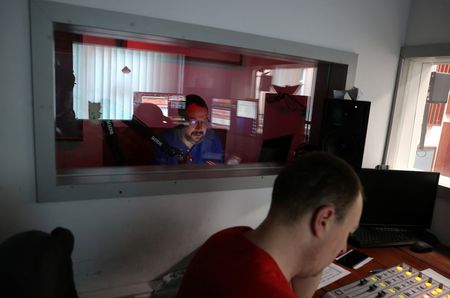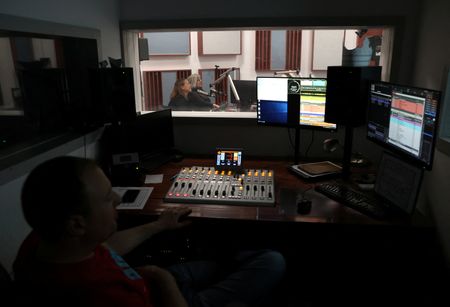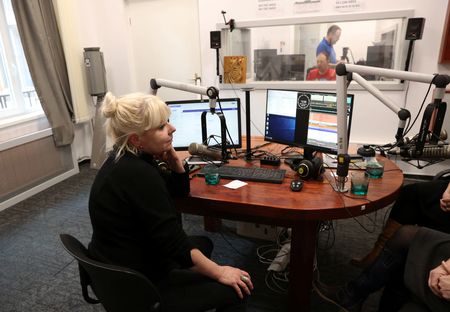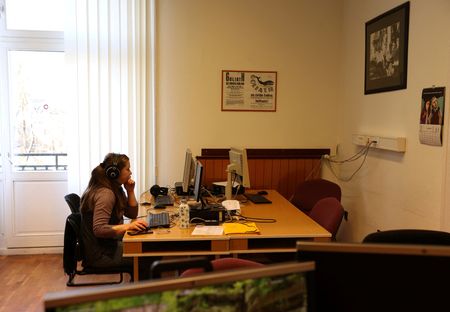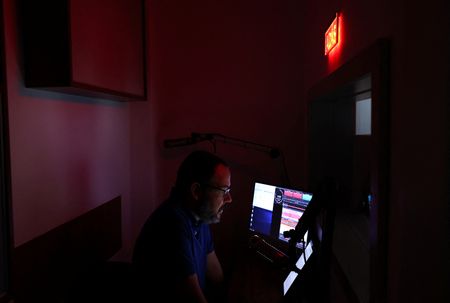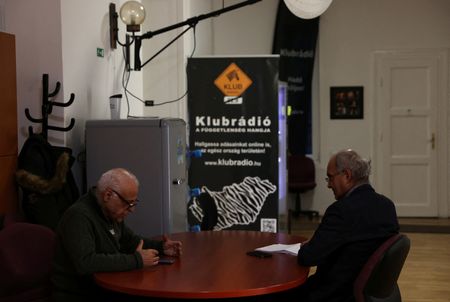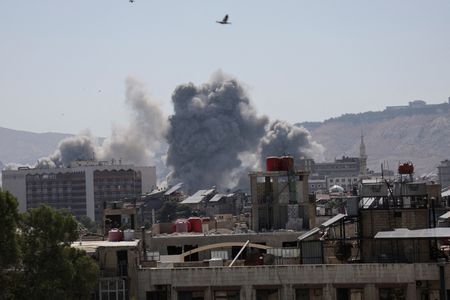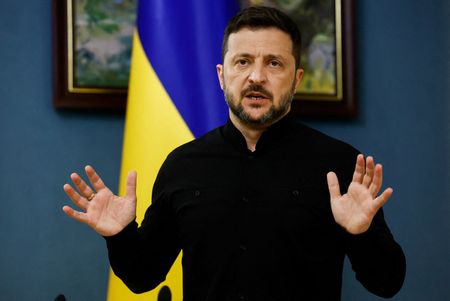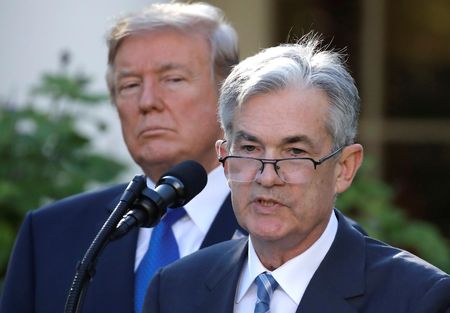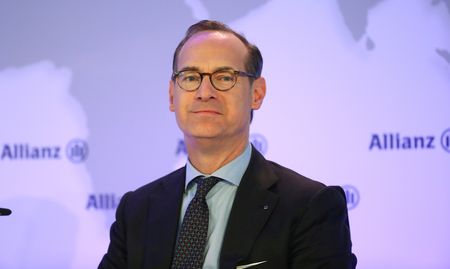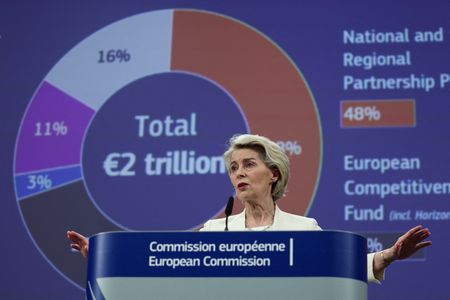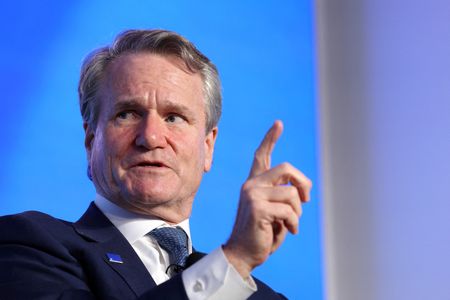By Krisztina Than and Daria Sito-Sucic
BUDAPEST/SARAJEVO (Reuters) – At a Feb. 10 editorial meeting of Hungarian investigative outlet Atlatszo, journalists discussed how they might raise money after their grants from USAID intermediaries were halted amid U.S. President Donald Trump’s drive to shutter the agency.
“Without these funds it would be very hard to maintain independent media here (in Hungary),” Atlatszo’s managing editor Tamas Bodoky told Reuters, adding that they would seek new donors and try to increase crowdfunding.
Atlatszo, a non-profit outlet set up in 2011, has published investigations on corruption, Hungarian oligarchs close to the government and the fate of EU funds, among other issues. Bodoky said USAID indirectly financed some 10-15% of its budget in 2023 and 2024.
Trump’s decision – first to freeze most funds disbursed by USAID for 90 days and put most of its staff on leave and then to ask billionaire Elon Musk to scale down the agency – has caused chaos for NGOs and humanitarian projects worldwide.
While the U.S. Agency for International Development (USAID) distributes billions of dollars of humanitarian aid, it has also been involved in many other projects, including those aimed at strengthening civil society and democracy worldwide.
USAID opened new programmes in central Europe in late 2022, supporting locally-driven initiatives to bolster democratic institutions and independent media – much to the chagrin of Hungary’s Prime Minister Viktor Orban, a Trump ally who has welcomed the U.S. president’s moves against the agency.
Although the ultimate fate of many USAID programmes remains uncertain, the Trump administration has indicated it does not see supporting journalism in countries where rights groups say press freedom is limited as a good use of U.S. public funds.
“The US radical-left has been using US taxpayer money to fund radical-left political parties & media around the world,” Musk wrote on X on January 29. Both Musk and Trump have branded USAID as “corrupt”, without providing evidence.
Trump’s moves against USAID prompted Orban to say on February 7 that he wants to eliminate all “foreign networks” of NGOs and media critical of his government, fuelling fears that it will embolden him and other illiberal governments to enact clampdowns on media they deem to be unfriendly.
“Money from abroad cannot be allowed to influence Hungarian politics, and we shall enforce this legally, with those who are complicit in this facing legal consequences,” said Orban, who faces a challenging election in 2026 amid a struggling economy.
Orban has transformed Hungary’s media landscape over the past 14 years. State media have been put under full government control and several private media outlets shut or taken over by government-friendly owners.
Tight media control has helped Orban win the past three elections with a landslide.
PRESS FREEDOM
In 2024, Hungary ranked 67th on the World Press Freedom Index, down from 23rd in 2010 when Orban took power, with its ranking well below that of Poland or the Czech Republic.
Georgia and Bosnia – two other eastern European countries heavily impacted by Trump’s efforts to dismantle USAID – ranked 103rd and 81st, respectively, for press freedom last year.
The Sarajevo-based “Umbrella” association, a hub for 13 non-profit media involved in investigative journalism in the Balkans, is among organisations waiting to know if USAID donations will resume after Trump’s 90-day financing freeze.
“If U.S. donations to media in Bosnia and Herzegovina were to be halted (permanently), some of them would be forced to reduce the scope of their work… cutting the number of serious stories about corruption, organised crime and abuse of power,” said Umbrella director Milica Samardzic.
Paulina Milewska, a researcher for the European University Institute in Florence, Italy, also cited the risk that media outlets that lose USAID funding will need to cut back on deeper coverage.
While the U.S. government has long helped fund media organisations all over the world, eastern Europe has always been a major focus dating back to the Cold War, when the CIA helped establish outlets to sway public opinion against communism.
Musk called on February 9 for the closure of Radio Free Europe (RFE) – which has been funded by U.S. government money separate to USAID since 1950 – saying it was a “relic of the past”. In an emailed reply to Reuters, RFE declined to comment.
After the USAID freeze, the European Federation of Journalists (EFJ) called on European institutions and foundations to mobilise in support of media pluralism and independent journalism, saying Trump’s move would cause “chaos in the media ecosystem of over 30 countries around the world, including many European countries”.
These include Georgia, where tens of thousands of people have been protesting for months against a government they see as pro-Russian and authoritarian and which has suspended negotiations to join the European Union.
Among media outlets there affected by Trump’s decision is English language news site OC-Media, which said it had lost funding for three USAID-backed projects.
“Without independent journalism, there will be no one to hold power to account,” said its co-founder, Dominik Cagara.
(This story has been corrected to fix the location of the European University Institute to Florence, not Warsaw, in paragraph 17)
(Reporting by Krisztina Than, additional reporting by Daria Sito-Sucic in Sarajevo, Felix Light in Tbilisi, Malgorzata Wojtunik in Warsaw; Editing by Gareth Jones)

